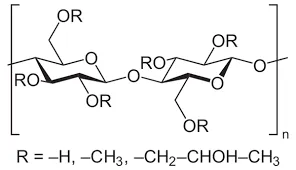
dec . 20, 2024 00:59 Back to list
mhec-methhyl hydroxyethyl cellulose
Understanding MHEC Methyl Hydroxyethyl Cellulose
Methyl Hydroxyethyl Cellulose (MHEC) is a versatile cellulose ether that plays a significant role in various industrial applications, particularly in the construction, food, and pharmaceutical industries. Its unique properties make it a valuable ingredient in formulations that require thickening, binding, and stabilizing agents. In this article, we will explore the characteristics, uses, and benefits of MHEC as well as some considerations for its application.
What is MHEC?
Methyl Hydroxyethyl Cellulose is derived from cellulose, the natural polymer obtained from plants. It is modified through a chemical reaction that introduces methyl and hydroxyethyl groups into the cellulose structure. This modification alters the physical and chemical properties of cellulose, resulting in a compound that is soluble in water and forms gels or viscous solutions. The introduction of these groups enhances the compound's solubility and stability, making it suitable for a wide range of applications.
Key Characteristics
MHEC boasts several key characteristics that make it highly desirable in various formulations
1. Water Solubility MHEC is soluble in water, which allows for easy integration into liquid formulations. Its aqueous solutions exhibit excellent stability and viscosity characteristics.
2. Thickening Agent One of the primary functions of MHEC is to act as a thickening agent. It increases the viscosity of solutions and dispersions, which is crucial in formulations requiring a specific texture or mouthfeel.
3. Binding and Film-Forming Properties MHEC can enhance the binding properties of mixtures, making it an ideal additive in applications such as tile adhesives, paints, and coatings. Additionally, it forms a continuous film upon drying, contributing to the overall stability of the products.
4. Pseudoplastic Behavior MHEC exhibits pseudoplastic behavior, meaning its viscosity decreases under shear stress. This feature is essential in applications where ease of application is important, as it allows the products to flow easily during processing but thickens upon standing.
mhec-methhyl hydroxyethyl cellulose

5. Thermal Stability MHEC demonstrates thermal stability, which means it maintains its properties even under elevated temperatures, making it suitable for formulations that undergo heat during processing.
Applications of MHEC
MHEC is employed in a wide variety of sectors, reflecting its adaptability and effectiveness. Some notable applications include
- Construction Industry MHEC is widely used in cement-based products like tile adhesives, joint compounds, and patching materials. Its ability to enhance workability and water retention leads to improved adhesion and reduced cracking.
- Food Industry In food applications, MHEC is valued for its thickening and stabilizing properties. It is used in sauces, dressings, and ice creams to achieve the desired consistency and texture while contributing to shelf stability.
- Pharmaceuticals MHEC serves as an excipient in drug formulations, where it acts as a binder and viscosity-enhancer in tablets and capsules. Its controlled release properties also make it a common ingredient in sustained-release pharmaceutical formulations.
- Personal Care Products MHEC is often included in personal care products such as shampoos, conditioners, and lotions. Its thickening and stabilizing abilities contribute to the overall texture and application of these products.
Considerations and Conclusion
While MHEC is generally recognized as safe for use in various applications, formulating with it requires careful consideration of its concentration and the specific formulation environment. As with any additive, it is crucial to understand the characteristics of the final product and to conduct thorough testing.
In conclusion, Methyl Hydroxyethyl Cellulose (MHEC) is a multifunctional cellulose ether that serves numerous industries with its excellent thickening, binding, and stabilizing properties. Its adaptability and effectiveness make it an essential ingredient in various formulations, contributing to product performance and consumer satisfaction. As demand for sustainable and effective materials continues to rise, the role of MHEC in innovative formulations will likely expand, offering exciting possibilities for future applications.
-
Versatile Hpmc Uses in Different Industries
NewsJun.19,2025
-
Redispersible Powder's Role in Enhancing Durability of Construction Products
NewsJun.19,2025
-
Hydroxyethyl Cellulose Applications Driving Green Industrial Processes
NewsJun.19,2025
-
Exploring Different Redispersible Polymer Powder
NewsJun.19,2025
-
Choosing the Right Mortar Bonding Agent
NewsJun.19,2025
-
Applications and Significance of China Hpmc in Modern Industries
NewsJun.19,2025







